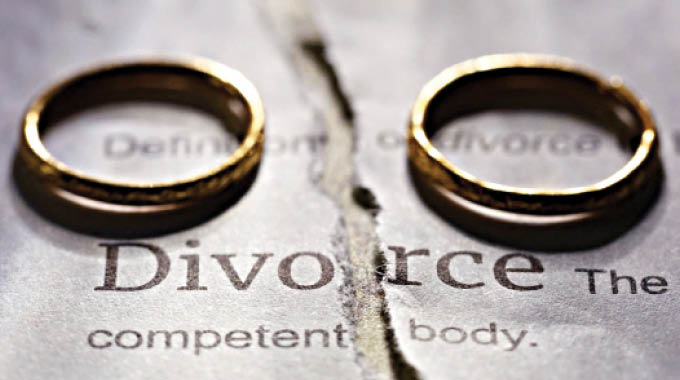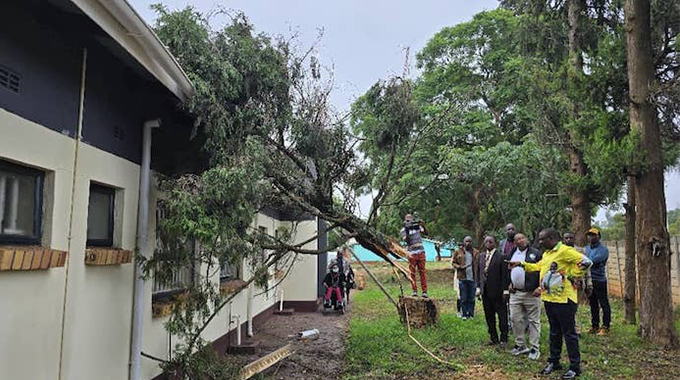139 file for divorce in Bulawayo in 2 months

Peter Matika, [email protected]
BULAWAYO has since the beginning of the year recorded shocking divorce statistics with 139 applications filed at the High Court before the end of February.
From the 139 divorces filed at the Bulawayo High Court, nine cases have already been concluded, highlighting the gravity of this trend.
Last year, Bulawayo recorded 658 divorces with statistics from the Judicial Services Commission (JSC) pointing to an upward trend in divorce cases in the region.
In 2020, a total of 1 117 couples filed for divorce across the country and the figure shot up to 1 351 in 2021.
Last year, the figure doubled to 2 735 cases countrywide against 13 436 recorded marriages.
Official statistics show that an estimated 20 percent of Zimbabwean registered marriages are likely to end in divorce, which analysts say is a worrying social trend.
Divorce in many societies is often deemed as a last resort but the outcome often negatively impacts both parties, their children, family and the community.
The reasons behind these marital dissolutions remain a matter of concern for the community.
In interviews, social commentators and family law experts attributed the rise in divorces to several factors, which include infidelity, gender-based violence (GBV) and socio-economic challenges, among others.
They also cited social media abuse and poor communication as major drivers of divorces across the country.
Zimbabwe Women Lawyers Association (ZWLA) regional director, Ms Sethulo Ncube, said some of the major causes of divorces are gender-based violence (GBV) and lack of commitment, which is the most common reason for divorce.
“Marriage is not always easy and for it to succeed it requires both spouses to be dedicated to their union and seriousness about making it last.
“That is why it is not surprising that a lack of commitment could spell disaster for a couple,” she said.
Local lawyer, Mr Tinashe Runganga, said the major course of divorce is the intertwining of cultures.
He said in African culture and tradition divorce is considered taboo but with the evolution of the world and its condensation divorce is as inevitable as death.
“Living together before marriage is one predictor of the likelihood of divorce. Couples who do not cohabitate before marriage have a union that lasts longer compared to those who live together before tying the knot,” said Mr Runganga.
“The marital stability within a couple’s social network also plays a role in whether their union will last or not. Couples who have friends who divorce have a high risk of their marriage ending.”
Council for Churches in Africa leader Dr Rocky Moyo said the causes of divorce vary with set-ups, saying some are caused by infidelity, financial challenges, lack of communication and intimacy, violence within the marriage institution and unresolved disputes.
“Infidelity is another leading cause of divorce. When a marriage is supposed to be monogamous and one party fails to fulfil this obligation, trust can be lost and the marriage may be irretrievably broken,” he said.
Dr Moyo said domestic abuse also contributes to the rise in divorce cases.
“Domestic abuse is a serious crime, it is also common among couples who are divorcing. An uncontested divorce arranged through a mediator may not be the best approach despite its benefits in ordinary situations,” he said.
Dr Moyo said a lack of knowledge about what marriage entails also contributes to divorce.
A family counsellor, Mrs Nonhlanhla Gwebu, said basic incompatibility and money issues are among the major factors behind a rise in divorce cases.
She said the final straw in divorce is caused by infidelity, domestic violence, and substance abuse.
“There is not just one factor resulting in a marriage ending. Couples may face many problems. People who dissolve their unions usually report that there would be a tipping point that pushes them over the edge,” she said.
“When there was a final straw, infidelity was the most common issue that ultimately prompted divorce. When a marriage ends, there is often plenty of blame to go around.”
Ms Thandolwethu Mafu, a psychologist, said gender equality that has seen women going to work and at times turning into breadwinners is also contributing to the collapse of marriages.
“Women used to stay at home as their husbands went to work to fend for the family. Today the tables have turned as women are now slowly becoming breadwinners,” said Ms Mafu.
“Most men are failing to accept that their wives can look after them. Such an exchange in the family roles has sparked disputes as men end up feeling inferior.” -@petematika












Comments